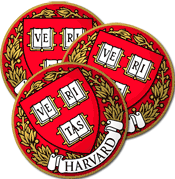 One of the big buzzwords circulating through the halls of academia has been “gamification,” the concept of introducing game-like elements into the higher ed environment. The NMC Horizon Report of both 2011 and 2012 indicated that game-based learning is a growing trend in the classroom, and just within the past month, articles in the New York Times and The Chronicle of Higher Education highlight an element of gamification that may very well disrupt the entire paradigm of attending a school to earn a degree. This new element is the digital “badge,” a possible foundation for what might be called the “alternative credentialing” movement.
One of the big buzzwords circulating through the halls of academia has been “gamification,” the concept of introducing game-like elements into the higher ed environment. The NMC Horizon Report of both 2011 and 2012 indicated that game-based learning is a growing trend in the classroom, and just within the past month, articles in the New York Times and The Chronicle of Higher Education highlight an element of gamification that may very well disrupt the entire paradigm of attending a school to earn a degree. This new element is the digital “badge,” a possible foundation for what might be called the “alternative credentialing” movement.
This movement is serious business. The Mozilla Foundation has established the Open Badges project, which, with support from the MacArthur Foundation, is defining the Open Badge Infrastructure, a technology suite that can be used to build an ecosystem of badges. The Digital Media and Learning Competition, sponsored by the MacArthur Foundation and the Bill and Melinda Gates Foundation, awarded several grants to institutions such as Disney-Pixar and NASA to explore the concept of badges in life-long learning. Prominent Universities, including Duke, Purdue, and Carnegie-Mellon, are also experimenting with badges. And badges will probably play a significant role in the credentialing process of the now ubiquitous MOOCs.
The question remains, of course, as to whether badges will ever be considered as valuable as a regular degree. The jury is out on that one, and probably will continue to deliberate on this issue for years, if not decades, to come. But should the time come when a collection of badges on your resume is equivalent to a degree from a major University, prepare to witness a revolution in higher education.